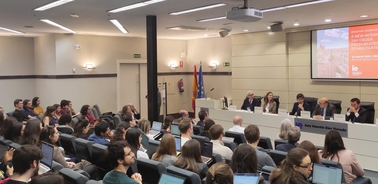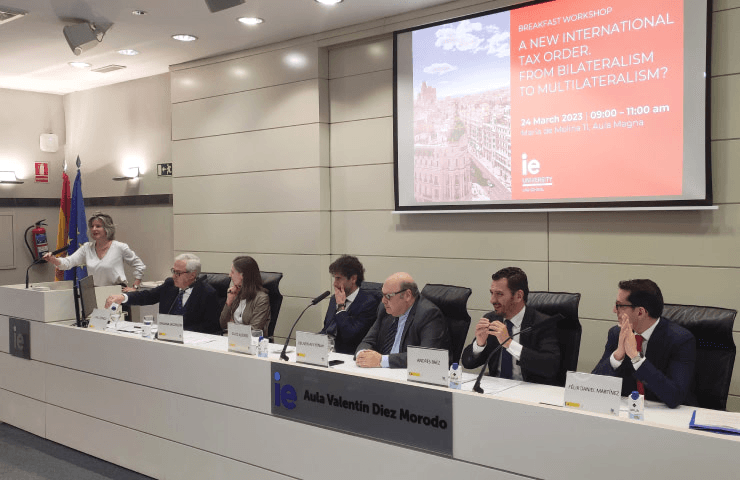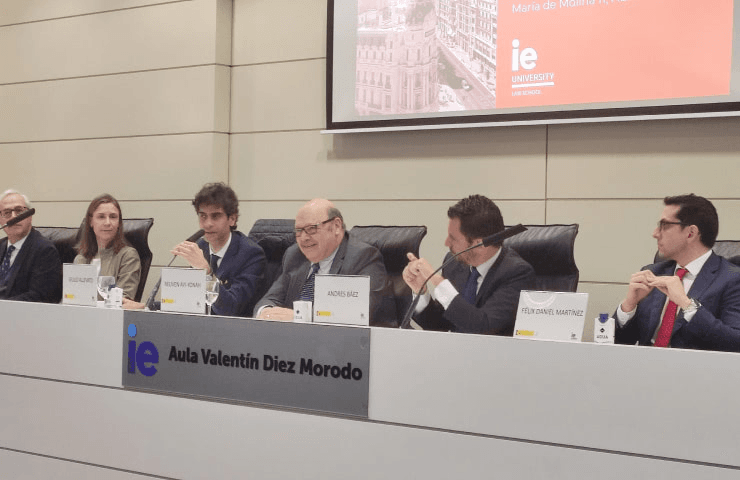- Home
- We Are Law School
- News
- A New International Tax Order. From Bilateralism To Multilateralism
A New International Tax Order. From Bilateralism to Multilateralism

IE Law School welcomes Reuven Avi-Yonah and other distinguished guests to a workshop on the need for a multilateral tax system.
On March 24th, IE University’s María de Molina Campus played host to a workshop featuring prestigious keynote speaker Reuven Avi-Yonah, Irwin I. Cohn Professor of Law at the University of Michigan Law School. Professor Avi-Yonah led the panel to discuss his working paper on the reform of the international tax framework and was joined by other distinguished guests. The event was organized by Giulio Allevato, Professor of International Tax Law at IE Law School, who opened the discussion before handing it over to the man who was once his teacher.
“The reason multilateral agreements are not happening is due to fundamental divergence of interests.”
Professor Avi-Yonah
In his opening speech, Professor Avi-Yonah presented a short history of international taxation, looking back at the League of Nations’ attempts to establish a multilateral system as long ago as the 1920s. He noted that the current tax system is based on bilateral agreements and was drafted at a time when the economy was different, emphasizing that the tax community needs international change. Now, one hundred years later, he feels as though we are no closer to achieving that goal. Professor Avi-Yonah emphasizes: “The reason multilateral agreements are not happening is due to fundamental divergence of interests.”
IE University’s Johanna Jacobsson, professor of IE Law School and a lawyer with expertise in international economic and trade law, reflected on how taxation systems could learn from her field. She underlined how, contrary to taxation, trade has successfully employed multilateral solutions in the past, though did concede that the trend was on the wane due to divergent interests and increasing nationalistic sentiment worldwide.
Professor Félix Daniel Martínez of the Universidad Autónoma de Madrid then spoke about the concept of an international tax regime and said it should be based on two main assumptions–single tax and the benefits principle. Fundamentally, he explained, these treaties must be “against both double taxation and double non-taxation,” commenting that moves towards multilateral agreements have presented viable methods to the latter.
Professor Juan J. Zornoza of the Universidad Carlos III Madrid & Of Counsel at Deloitte Legal then followed on from Professor Avi-Yonah’s historical look at efforts to establish an international tax system, highlighting that there was never any tangible progress made in negotiations. He puts that down to the fact that these treaties would, by definition, involve numerous countries with historically different views and tax systems. He explained that even the OECD respects and preserves the bilateral nature of current tax regulations, claiming they have built a multilateral system only in form.
Universidad Carlos III Madrid’s Professor Andres Báez then took the floor, labeling BEPS Pillar I “the worst of both worlds,” as he explained, the United States doesn't like it and neither do developing countries. He is of the opinion it is only a matter of time before it collapses and when it does, he says, we’ll have a choice between either making tax deals or withholding taxes.
The session concluded with remarks from all speakers before students from IE Law School got the chance to pose questions to the panel.

